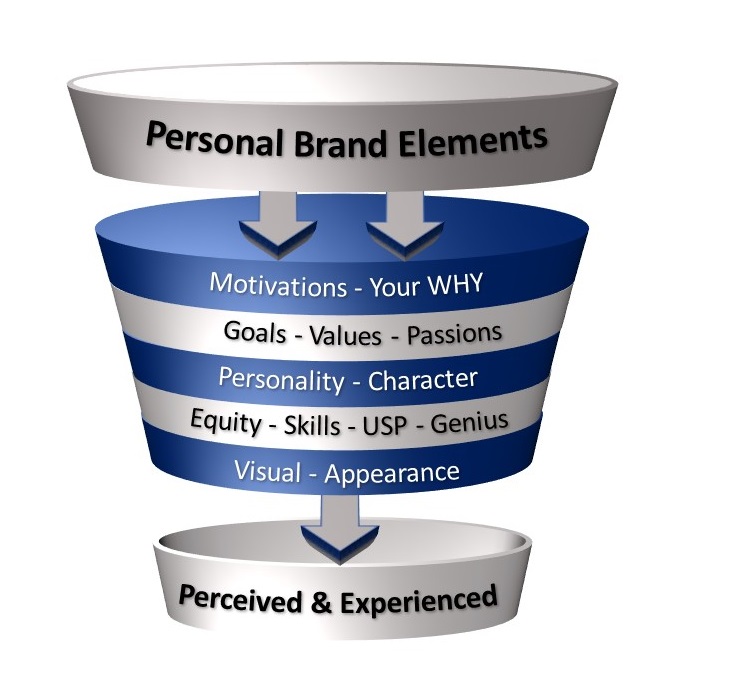Not every lawyer can be or wants to be a thought leader, major influencer, or a big brand personality. And that’s perfectly okay. But every legal professional can be relevant, real, and the best version of themselves, writes Sue Parker.

There are so many misconceptions and myths causing confusion and overwhelm which results in a refusal to engage in personal brand marketing or doing it poorly.
That is not an opinion or perception but a fact. It's impossible for a direct duplication of legal skills, ability, values, ethics, personality and character.
Every legal professional can build visibility and credibility as a subject matter expert in their specific field. Standing out, owning your value, genius and power is available to all.
The truth about thought leadership
There is a lot of hype swirling that you must sit on a pedestal of self-grandeur and hoopla which is nonsense. We observe such zeal on social media which is mostly counter-productive to authentically communicate and leverage a legal personal brand. There is much confusion about what constitutes a thought leader.
And it’s not a title you bestow on yourself but the essence that you communicated which demonstrates such. Other people can bestow and promote you as a thought leader. And personalities and characters have zippo to do with being a thought leader. My definition is:
“A thought leader is totally different to a leader (but not always mutually exclusive). Thought leadership is being truly innovative. Thought leaders develop and create unique solutions, ideas and concepts for significant impact and change in their field.”
Influencer branding can also be different from being influential and having influence. We all influence in some way shape or form – be it at micro or macro levels. The notion that everyone has to be a powerful influencer with gigantic LinkedIn follower metrics is unfounded and often damaging.
Thriving in legal practices, be they solo to major is challenging and even more so since the internet revolution and the pandemic. We are drowning in content, digital overwhelm and an ocean of choices. Grabbing a solid chunk of your legal sector's financial pie is both harder and easier than ever before.
Standing out in competitive legal oceans
But a strong and enticing personal brand is vital to stand out in the competitive legal oceans – especially for service businesses. It is the strategic marketing differentiator to grab that chunk of pie and hold your own.
In his 1997 Fast Company article The Brand Called You, Tom Peters challenged us to harness the significance of personal brands alongside the importance of big business brands. Whilst much has changed since then with social media overtaking the world, there are still relevant tips and values. He wrote:
“If you want to grow your brand, you’ve got to come to terms with power — your own. The key lesson: power is not a dirty word! In fact, power for the most part is a badly misunderstood term and a badly misused capability. I’m talking about a different kind of power than we usually refer to.
“It’s not ladder power, as in who's best at climbing over the adjacent bods. It’s not who’s-got-the-biggest-office-by-six-square-inches power or who’s-got-the-fanciest-title power. It influences power. It’s being known for making the most significant contribution in your particular area. It’s reputational power.”
In essence
In essence, personal branding has been in existence for eternity. Everyone has one albeit referred to differently. Police, politicians, school teachers, salespeople, tradespeople, CEOs, students, store managers, celebrities, clerks, directors etc– no one is exempt.
Perception and experiences of that brand can be negative, neutral, or positive. And those perceptions have a long bow based on many factors
Five elements of branding perception

There are five elements coalescing a personal brand culminating in perception and experience.
Motivations, values, personality, equity, and visuals are displayed and woven into all written, media, and verbal communications. Diving into each element can be pretty confusing and confronting. Many professionals require a third perspective across the equity element as they grapple with seeing their genius and impact with clarity.
Women can often downplay their equity and a great recalibration is to remember that 'reality statements are not value judgements'.
There is a huge line between overt bragging and championing skills and outcomes. And I promise that everyone has numerous golden USP nuggets, purpose, and a style that no one else shares. They may be simple, complex, or multi-dimensional.
And those unique nuggets hold the key to your brand differentiation. And it’s that differentiation that needs to be powerfully communicated in a way that is accurate in an engaging and real manner. Storytelling has a big part to play here with creativity and nuance.
Attracting for meaning and joy
An extra aspect around values-goals-passions is to reflect on the clients and networks you do and do not want to attract. Who and what brings your practice and field joy and satisfaction is equally important as who doesn’t. Getting clear here gives an edge in your communications that instinctively repels those who you don’t wish to attract and draws more of those you do.
I cannot stress enough the importance of being real and direct without hyperbole. The metal needs to meet the road for congruency, trust, and brand consistency as a human being.
Brand promise and confidence
We are not perfect humans and sometimes we can go off brand. But we need to strive for a 90% consistency rate. Overall, the personal brand promise will benefit businesses enormously in attracting and retaining clients, networks, new jobs, and employers.
And as humans, we all grapple with confidence at times so need clarity and strategies to keep a lid on self-doubt. Be daring and fearless in how and what you communicate. You are the only person who does what you do in the way you do it. Step up and out into the world in a way that showcases your legal brilliance and as the best real version of yourself. And have some fun too.
Sue Parker is the owner of DARE Group Australia.